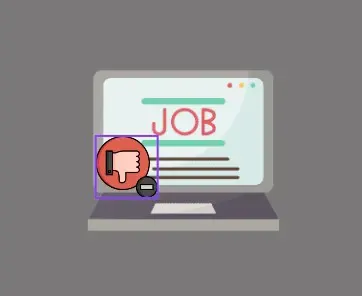Plagiarism is considered a serious academic offense that can have severe consequences for students in terms of both academically and professionally. And in today’s digital world, students are facing immense pressure to excel in their academic performance and stand out as successful individuals in both academic and professional careers.
However, due to the pressure from parents, teachers, etc., some students may try to plagiarize their academic work in order to achieve good results. And most of them may be unaware of the fact that committing plagiarism can not only affect their career but also their personal growth.
That’s why, we have decided to come up with a complete blog post covering the effects that plagiarism can have on a student's career, but before that let us quickly explain what actually plagiarism is for students.
What is Plagiarism?
Plagiarism is an act of copying another person’s written text/content without giving proper credit to the original author.
For students, plagiarism can be done in many forms. These include copying & pasting assignments or research papers content from online sources, not providing proper attribution (credit), accidentally matching information with someone else, etc.
Now, let’s head toward the effects that plagiarism can have on a student’s career.
How Plagiarism Affects Students Career
1. Academic Penalties
Most of the time, plagiarism results in academic penalties for students. When a student is caught plagiarizing academic work, they have to face different penalties either from their teacher/instructor or the educational institution. The penalties usually include:
Lower grade or failing a course: If a student plagiarizes academic work, the teacher or institution can give a lower grade or even fail the student in that particular course/term.
Hearing in front of the committee: Apart from getting lower or failing, students may face standing up in front institutional committee and providing valid reasons why he/she plagiarized the work.
Suspension from institution: Committing plagiarism also causes students to face either temporary or permanent suspension from the educational institute.
So, these are some most common penalties that students can face in response to plagiarizing their academic tasks. Although, there are also some penalties as well such as fines or other kinds of punishments.
2. Damaged Academic Reputation
Committing plagiarism can also damage the overall academic reputation of students. And this is one of the worst effects of plagiarism. This is because a damaged academic reputation usually has long-term consequences that can even the future of students in permanently way. Let us explain.
If a student plagiarizes academic work and gets caught, then this will not only damage the credibility of their work but can also lead to a lack of trust from teachers and peers.
Moreover, it is also possible that the teachers or the institution can call those students’ academic achievements and previous work into question. And then marked them less credible as well.
That’s why, it is essential for students to understand and maintain the integrity and originality of their academic work. So that, they can have an academic career that is free from the stains of plagiarism.
You Should Read: Tips to Write a High-Quality Research Paper
3. Diminished future opportunities
Lastly, plagiarism can also affect students’ careers by diminishing their future opportunities. Let us explain.
If a student is applying for further education or jobs while having a history of plagiarism, then he/she may not be able to get the desired attention or results. This is because admission committees and organizations require honesty and integrity of work, and plagiarism goes against these values. That’s why, the plagiarizer (student who committed plagiarism) may face a struggle in grabbing opportunities.
Moreover, a student who has passed his entire academic career by plagiarizing the work may face difficulties in the professional field. As he/she will not have an understanding of the things that were taught during the academic career.
You Should Read: Tips
to Improve Your Academic Writing
How To Ensure That Your Work is Plagiarism Free?
Considering all the consequences that we have listed above; you will naturally want to avoid them by ensuring that none of your work has any plagiarism in it.
For the next part of this post, we will look at how you can do that.
1. To begin with, you have to make sure that you don’t do anything during the writing/composing phase that could lead to you committing accidental plagiarism. For example, you should take care to conduct proper research from a variety of different sources to avoid having your style and information influenced by a single one.
2. Then, once you are done with writing the content, you should use a plagiarism checker free to double-check whether there is any plagiarism in it or not.
3. If you do happen to find plagiarism in your work (despite your initial measures to avoid it), you should take the necessary steps to remove it (the plagiarism). There are a number of different ways to get about this.
- You can simply excise the plagiarized parts from your content and get yourself out of the danger zone
- You can also reword the plagiarized parts in such a way that they don’t match with whichever previously existing material they were caught to be plagiarized against
- You can also remedy accidental plagiarism by adding citations and giving credit to the source.
Final Words:
Plagiarism is a serious offense in academic writing and can have severe consequences. These include academic penalties (lower grades, failing, or suspension), damaged reputation, and diminished future opportunities. In this article, we have covered all these effects in complete detail. So, that students can understand the seriousness of their academic work.








